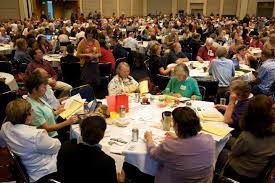The Art of Delegation
- B. Thomas Marking

- Sep 14, 2021
- 2 min read
Updated: Sep 24, 2021
The skills of Leadership should be practiced by nations as well as individuals.
I suppose my study of Leadership began as a teen when I enrolled in a Junior R.O.T.C. program in Montgomery, Alabama. After all these years, I am certain of this: Leadership is an art and not a science. The reading of a hundred books will teach one less than a short stint under a very fine leader, or a very poor one. You perfect this art first by observing the actions and consequences of those attempting to lead you and second, by trial and error in attempting to lead others. Failure is not an option. You must fail, sometimes repeatedly, as you determine what works for you and what works in various situations.
Observing those who have mastered the art is a wonderous thing. These gurus will shun the spotlight or train it on those they have mentored and groomed to become excellent leaders themselves. In a sense, they “lead from behind”, behind the scenes. Lao Tzu, a Chinese philosopher, said it best some 2700 years ago
“A leader is best when people barely know he exists,
when his work is done, his aim fulfilled,
they will say: we did it ourselves.”
Among all the facets of leadership, the most difficult to master is delegation. You know that you could accomplish a task with greater quality and efficiency than any of your subordinates, and yet, you must let go and allow them to discover and hone their own skills. The temptation can be overwhelming to jump in and show them your proven methods, but you must not. To do so may shorten the immediate task, but will prolong their own development as future leaders.
These principles can be easily applied to nation-states as they are to individuals. Is a government leading its people if it insists on doing every task itself, justifying its actions by imagining that it can always do the job better? Is a government leading if it compassionately removes the burden of governance from its people, leaving them with only the occasional requirement to cast a ballot? The answer is an emphatic, NO.
What must evolve now, is a form of government that fosters the political maturity of its people, a form that delegates to the people a greater share of the burden of governance. As Aristotle noted:
“We learn by doing . . .
So, we become just by doing just deeds,
Temperate by acting temperately,
Brave by behaving bravely.”
And we become mature Citizens by taking responsibility for our own governance.

However, reclaiming this authority (our promised sovereignty) from a government that seeks ever more control over its subjects, will require evolutionary change. We Citizens must shed our comfortable cocoons and take flight, soaring above the dismal swamp of politics as usual. We must become our government’s worst nightmare – Citizens who demand control of the policies that affect their own lives. That is what the Citizen v2.1 Movement is all about.
15 September 2021









Comments